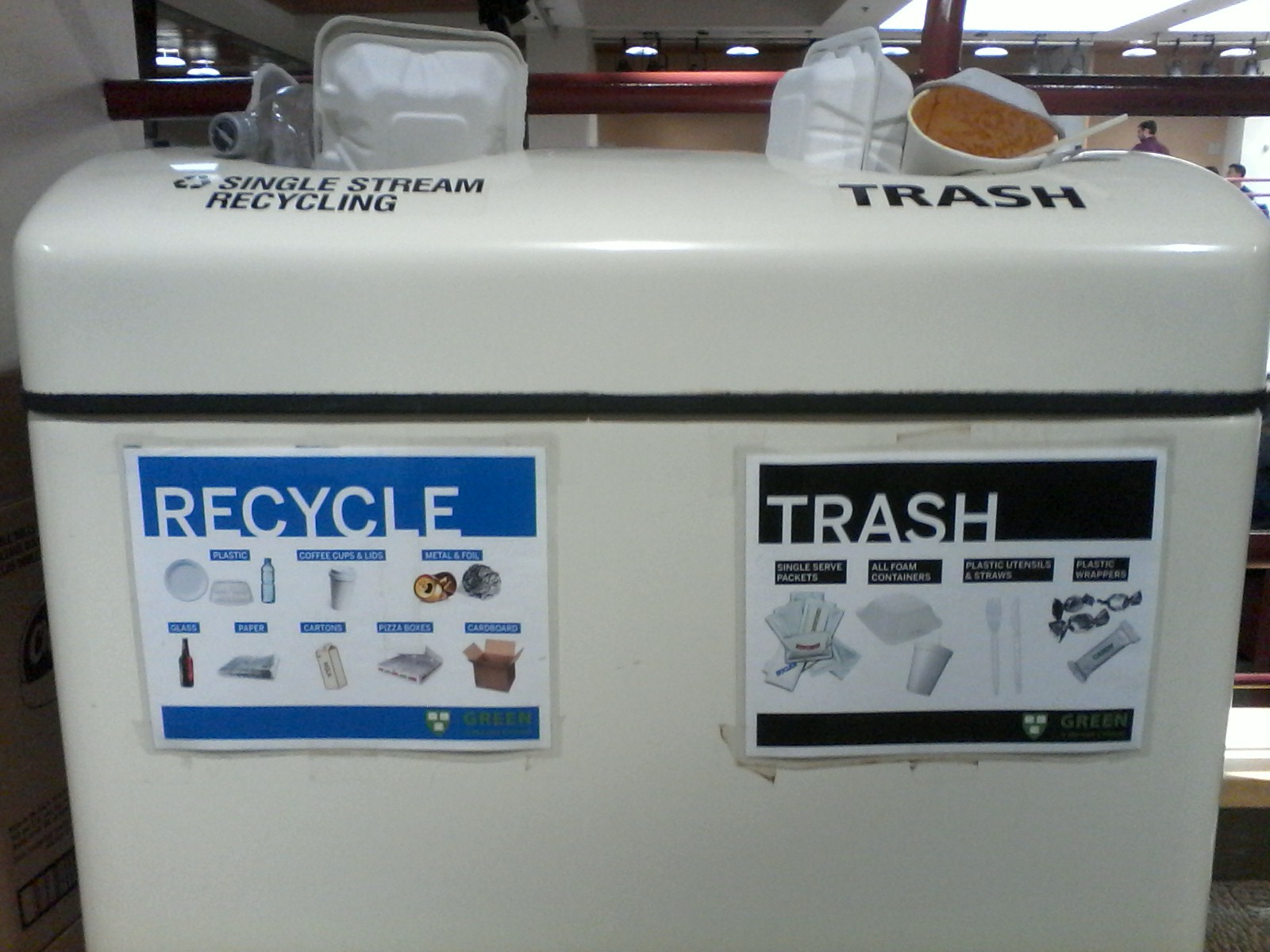By Ketilbjørn Hertz, MC/MPA 2017
Can you tell me how many different waste containers HKS employs and what each of them is for? If you cannot, when you have waste to dispose of, do you at least follow the instructions on the waste containers and place your waste in the appropriate container?
Before I started my research for this column, my own answer to the first question would have been vague and to the second that I strived to do so.
Unlike HBS and HLS, HKS has no on-campus residences. In this respect, HKS is like the GSD or GSE—students do not live on campus; instead, they commute. Some Harvard schools have an easier time achieving high rates of recycling because students encounter 24/7 the same “single stream recycling” system adopted across Harvard in 2009. Depending on where they live, HKS students may only encounter the “single stream” for all recyclable materials (paper, boxes, bottles, cans, and containers) when they are on campus.
Moreover, HKS has the most diverse student body of all Harvard schools. Its students come from all parts of the U.S. and indeed from upwards of 150 different countries and territories across the rest of the world. Before arriving on campus, the students will have lived with and been used to a wide variety of different recycling traditions. Nevertheless, apart from those participating in executive education programs and some cross-registrants, students will spend at least one academic year at HKS, which should give most students sufficient time to learn how to sort their waste properly while they are here.
But do students and other users of the waste bins at HKS place recyclables in the appropriate bins? What does the data show?
A quick look at the 12 pairs of recyclables/trash waste bins found in and around the JFK Jr. Forum area (ground floor to 3rd floor) revealed recyclables in the trash bin half of the time. Similarly, if you stroll through one of the corridors at HKS in the early evening, after faculty and staff have placed their office wastebaskets outside their office doors but before the wastebaskets have been emptied, you are likely to see recyclables mixed with trash in many of them.
Admittedly, this is anecdotal evidence, but it is consistent with the waste audits which were carried out in 2010-2012, and again in 2016. A “waste audit” may sound like a desk exercise where an “auditor” examines something. It is not. A waste audit basically means taking a random sample of trash bags and sorting the contents of each bag into reusables, recyclables, and actual trash, and then weighing each part. Waste audits are “labor intensive,” Robert Gogan, Recycling and Waste Manager at Harvard University Campus Services, told me. Mr. Gogan would be happy to provide space for a waste audit every year, but as they depend on volunteers, that has not been possible.
The good news is that the proportion (by weight) of reusables and recyclables in the trash bins at HKS is down from 38-40% in 2010-2012 to 28% in 2016. Twenty-eight percent, however, is still a lot of reusables and recyclables “gone to waste.” In round numbers, that means that a quarter of the trash could have been reused or recycled. On a yearly basis, that amounts to about 40 tons.
HKS is already part of the Harvard-wide recycling program, and there are already many clearly marked pairs or triplets of waste containers on campus. So, what is missing? How can HKS improve?
In 2015, HKS adopted a comprehensive Sustainability Plan for 2016-2020. The plan has little to offer when it comes to improving recycling. Potential locations for additional compost bins should be evaluated, providing a recycling bin for every trash bin throughout the campus is an additional opportunity, and the expansion and tracking of composting and recycling programs are “in progress.” Except for the tracking part, this sounds like more of the same. (Emily Flynn-Pesquera, who was recently appointed Sustainability Manager at HKS, told me that she could not yet (being new on the job) speak to what had or would be done.)
I believe a crucial component is required to reach the full potential of a single stream recycling program at HKS: stronger student and, dare I say it, faculty and staff commitment to sort their waste. While I do not have a ready-made plan for raising awareness of and commitment to this issue at HKS, I invite everyone to bring forth good ideas. Emily Flynn-Pesquera told me she would welcome ideas for effective ways to raise awareness of current recycling opportunities, since a focus of her new position would include communication with HKS students, staff, and faculty.
Together, we can learn to recycle more efficiently.

